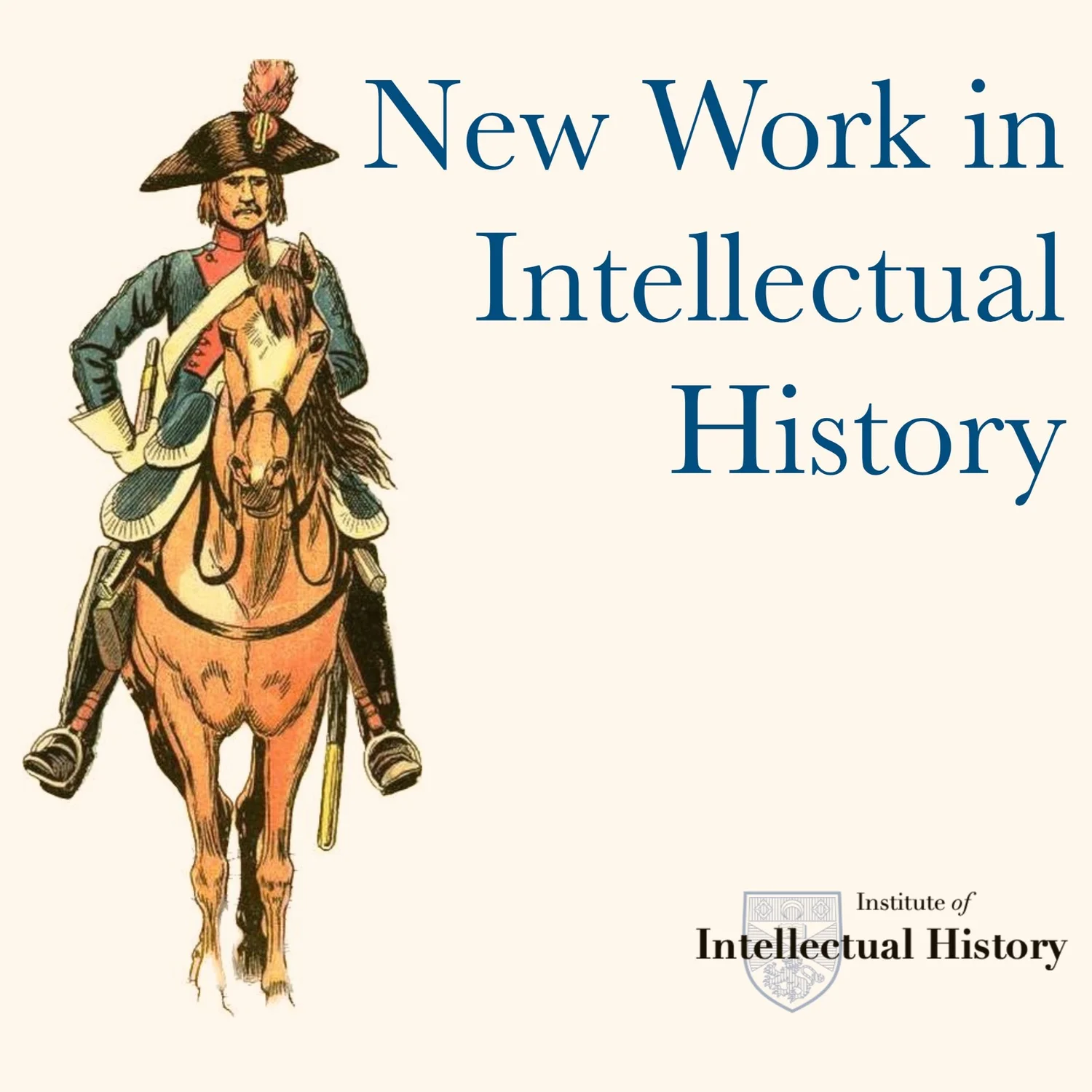

New Work In Intellectual History
Institute of Intellectual History
Listen to interviews with intellectual historians about recent research and new publications.
Episodes
Mentioned books

Jul 14, 2022 • 0sec
The Historiographical Value of Historians’ Autobiographies
In this episode, Dr Jaume Aurell talks about the value of twentieth-century
historians’ autobiographies as intellectual artefacts of historiographical
and academic intervention. He traces a trend in autobiographies throughout
the twentieth century to move from a documentary to an interventional
perspective and uncovers what he means by the term “interventional
historians”.
Dr Jaume Aurell is Professor at the Department of History at the University
of Navarra in Spain. His research focusses on medieval and modern
historiography. In 2019, he published his book Theoretical Perspectives on
Historians’ Autobiographies: From Documentation to Intervention with
Routledge.

Jul 7, 2022 • 0sec
Gibbon’s Christianity - Religion, Reason, and the Fall of Rome
Who can refute a sneer? asked William Paley of Edward Gibbon’s bitingly
satirical account of the emergence of Christianity in the Decline and Fall
of the Roman Empire (1776–1789). The plausibility of Paley’s
characterisation indicates that maybe, Dr Hugh Liebert suggests, Gibbon’s
acumen as a historian of religion has been ignored. An ironic philosophical
historian he certainly was but Gibbon was also an astute psychologist of
religion able to empathetically understand, even admire, early
Christianity’s appeal and power. Gibbon’s insights into religion derived,
moreover, from his own complicated personal engagement with religion as
much as his erudition as a historian.
Dr. Hugh Liebert is an Associate Professor of American Politics in the
Department of Social Sciences at the United States Military Academy in West
Point, New York.

Jun 30, 2022 • 0sec
Anti-democracy in England 1570-1642
In this episode, Dr Cesare Cuttica re-examines the idea of democracy in
early modern England in his latest book Anti-democracy in England 1570-1642
(Oxford University Press). The main premise of his original interpretation
is that democracy did not exist, and in fact, it was seen as a threat to
the way of life. Contemporary democratic ideas were dangerous, immoral and
were associated with the uneducated commonalty.

Jun 23, 2022 • 0sec
The Political Thought of Thomas Spence
Our guest this episode is Dr Matilde Cazzola who introduces us to the
ultra-radical English thinker and activist Thomas Spence (1750–1814),
famous for his “Plan” for the abolition of private land ownership. Often
dismissed as an eccentric anachronistic figure, Spence is shown by Cazzola
to be a fascinating political agitator aiming for the overturning of the
ancien regime in favour of the “swinish multitude”. He is also, Cazzola
contends, a subtle thinker with something to contribute to radical thinking
about communal property today.

Jun 17, 2022 • 0sec
Adam Smith Reconsidered
Is Adam Smith an apologist for capitalism who viewed it as the fourth and
final stage of socio-economic development? Was Smith provoked into his
moral and economic defence of capitalism by Rousseau’s Second Discourse?
Much current Smith literature would suggest the answer to both questions is
yes. But, perhaps, questions like these indicate that something has gone
very wrong with our interpretations of Smith? Paul Sagar thinks so. We
explore what needs to change and why in this conversation about his newly
published and enjoyably iconoclastic Adam Smith Reconsidered: History,
Liberty and the Foundations of Modern Politics (Princeton, 2022).

Jun 9, 2022 • 0sec
The Post-Medieval Reception of Medieval Manuscripts
In this episode Prof Margaret Connolly talks about the post-medieval
reception of medieval texts. Along a selection of eight manuscripts,
Margaret traces how three generations of a sixteenth-century family from
Middlesex read and used books from the fifteenth century. Examining their
annotations of the fifteenth-century manuscripts, Margaret derives insights
about the relevance of medieval contents for sixteenth-century readers and
places the individual personae into the context of the English Reformation.


